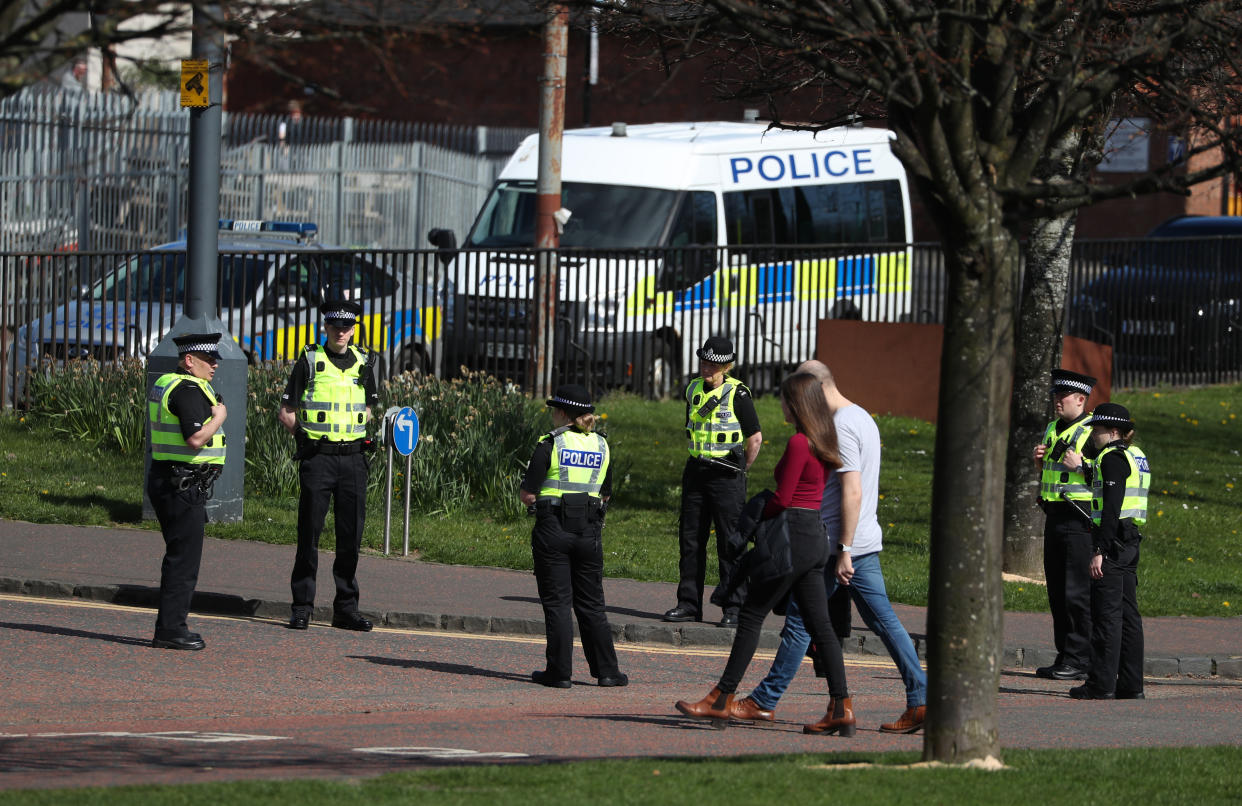UK death toll passes 10,000 as NHS chief says Britain is in 'round one' of fight against coronavirus

The UK has recorded 710 new coronavirus deaths, taking the total number of people who have died in hospital with the virus past 10,000.
There have now been 10,647 fatalities reported across England, Wales, Scotland and Northern Ireland - according to figures released by NHS England.
NHS Scotland said there had been 24 more deaths, In Wales there have been a 18 further deaths and Northern Ireland's death toll has increased by 11 - each country’s health authority said.
It comes as one of the country's top medical advisers said the UK is still in "round one" in the fight against coronavirus, and tackling the spread of the disease will be more a marathon than a sprint,
NHS England medical director Stephen Powis said that while vaccine development is under way and there had been progress with drug treatments, there will be no "magical solution" to end the lockdown.

He said it remains "absolutely critical" that people stick to social distancing measures, making clear the country is in the early stages of the battle against Covid-19.
Addressing the daily Downing Street briefing on Saturday, he said: "I don't think we can emphasise enough that we're still in round one here, we're still fighting the virus very early on.
Latest coronavirus news, updates and advice
Live: Follow all the latest updates from the UK and around the world
Fact-checker: The number of COVID-19 cases in your local area
6 charts and maps that explain how coronavirus is spreading
"What's absolutely critical at the moment is that we follow the instructions that have been given, we maintain social distancing, because any strategy will require us to get on top of this virus."
Prof Powis said that while a vaccine is an important part of the long-term management of the virus, it is unlikely to be a quick process.
He said: "Vaccines take months to develop, we need to make sure that they are safe and effective, and then of course they need to be manufactured and deployed. Vaccines are not the only part of an exit strategy."
He added that progress has also been made with drug treatments, but there will not be a quick fix.
"It is highly likely that over time this virus will become established worldwide in populations," he said.
"So this was never going to be a sprint over a few weeks, this is going to be a longer race. It is going to be a marathon."
A study of critical care outcomes published over the weekend showed that the death rate of patients admitted to intensive care with Covid-19 now stands at more than 51%.
The figure comes from the Intensive Care National Audit and Research Centre (ICNARC) and is based on a sample of 3,883 coronavirus patients.
The study shows that out of 1,689 patients in the sample whose care outcome was known, 871 died (51.6%), while 818 were discharged.
In comparison, just 22% out of 5,367 patients taken into critical care with non-Covid-19 viral pneumonia died between 2017 and 2019.
The coronavirus figures come from 284 NHS critical care units in England, Wales and Northern Ireland taking part in an ICNARC programme as of 4pm on April 9.
The largest number of Covid-19 patients remains in London, with 1,428 being managed by the three London Operational Delivery Networks - the system of co-ordinating patient care across the capital.
Coronavirus: what happened today?
Click here to sign up to the latest news, advice and information with our daily Catch-up newsletter



